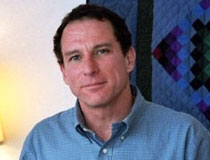James Ostrow, Ph.D.

Email: jostrow@lasell.edu
Degrees:
- Ph.D., Boston University;
- M.Ed., Boston University;
- B.A., Johnston College, University of Redlands
Biography:
Jim Ostrow’s principal scholarly interests lie within the intersection of social theory, continental philosophy, and American pragmatist philosophy. He is the author of Social Sensitivity: A Study of Habit and Experience (State University of New York Press) and Cultivating the Sociological Imagination: Concepts and Models for Service-Learning in Sociology with Garry Hesser and Sandra Enos (American Association of Higher Education). He has written articles in sociological theory, qualitative research, educational philosophy, and educational research methods, appearing in such journals as Sociological Perspectives, Human Studies, Qualitative Sociology, Perspectives, International Journal for Qualitative Studies in Education, and NSEE Quarterly.
Prior to his position at Lasell University, Jim Ostrow served as Director of Academic Affairs/Chief Academic Officer of Penn State University, Fayette Campus, and before that was Director of the Bentley College Service-Learning Center and Chairperson of Bentley College’s Department of Behavioral Sciences. He was Review Editor for the journal Human Studies, and he has served on the Steering Committee for “Project Connect,” a HUD funded collaborative providing voice mail service to homeless people in the Boston area. He is a member of the Board of Directors of The Second Step (an organization providing transitional housing and supportive services for survivors of domestic violence)."
What is your teaching philosophy for Lasell courses?
“Nothing matters to me more than converting subject matter into a perspective on the world for my students, a perspective they are driven to have and use toward positive change in the world. Students acquiring and proving that they know certain information is unimportant to me if I haven’t succeeded in affecting this conversion. I find that there is no better way to succeed in this way than collaborating with students on activities and projects where we are actually using ideas and methods of exploration in creative ways leading to actual discoveries.”
